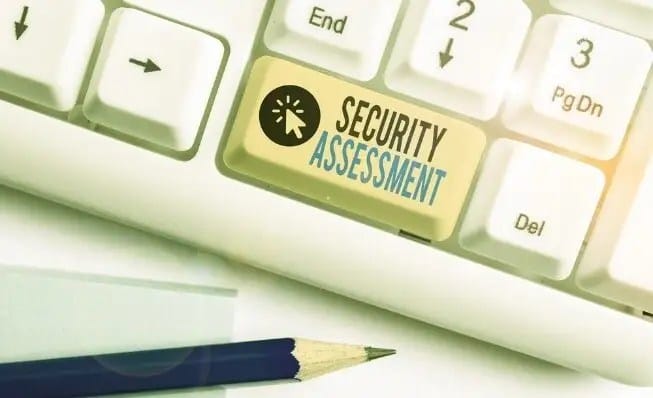What is a Suspicious Activity Report?
A Suspicious Activity Report (SAR), in some jurisdictions known as a Suspicious Transaction Report (STR), is a document that financial institutions (FIs) and other professional bodies, such as accountancy firms, estate agents and law firms file with government authorities when they suspect that a customer or transaction may be involved in money laundering or other illegal activities.
SARs are an important tool in combating financial crimes and are part of the anti-money laundering (AML) regulations. SARs are confidential and subject to strict regulatory and legal requirements. The specific content and format of SARs may vary depending on the reporting jurisdiction and the requirements set forth by the relevant government authorities.

What Information is in a SAR?
Typically, SARs include information on the suspected suspicious activities, the suspicious transactions identified and any other information relating to the subjects engaged in the suspicious activity. The specific content in SARs might vary depending on the entity reporting the SAR, country, jurisdiction or available information at the time of writing the SAR. Common elements in these reports are:
Identity Information
SARs include details about the individuals or entities involved in the suspicious activity, including names, date of birth, location, contact information, identification numbers, and other relevant identifying data.
Background Information
Added contextual information about the individuals involved, such as background, occupation, or known affiliations might be included in a SAR.
Reason for Suspicion
Why the reported activity is deemed suspicious by the reporting institution is included in a SAR, including red flags, atypical patterns, inconsistencies, or other factors.
Description of Activity
Typically, SARs include a narrative description of the suspicious activity, prompting the filing of a report. Examples include specific transactions, patterns of behavior, or other indicators.
Transaction Details
Financial transactions or attempted transactions making up the reason for suspicion must be reported in a SAR that includes information on transaction amounts, account numbers, dates, counterparty information or other supporting documentation
Source of Funds
Suspicious activity involving the movement of funds might include details about the source of those funds, such as origin, related parties, or intermediaries.
Compliance Officer Information
To enable further communication, SARs will contain information on the legal entity reporting the activity and will typically include the information of the compliance officer or employee filing suspicious activity reports.

Top Reasons why Suspicious Activity Reports are used
In an era where financial transparency and accountability are paramount, SARs have emerged as a critical tool in the fight against illicit financial activities. As the cornerstone of the modern anti-money laundering act and counter-terrorism financing efforts, SARs serve as financial institutions' vigilant eyes and ears. Here are the top reasons why they are indispensable.
Detection of financial crimes
Using extensive intelligence contained in SARs, law enforcement, and other regulatory authorities can conduct targeted financial crime investigations into offences such as terrorist financing, money laundering, fraud, and other illicit financial crimes. When financial institutions file suspicious activity reports, these documents contribute to the overall goal of combatting financial crime and prosecuting the criminals engaged in this activity.
Legal and regulatory compliance
Every financial and regulated institution has the legal obligation to comply with AML and counter-terrorist financing (CTF) regulations. Reporting suspicious activity is mandated in regulation with criminal offences for facilitating money laundering or financial crime. SARs play a crucial role in fulfilling these legal obligations. FIs that are noncompliant with regulations might suffer severe financial or criminal penalties and reputational damage.
Sharing information and cooperation
SARs facilitate cooperation and information sharing between financial institutions and regulatory agencies. This collaboration enhances the effectiveness of combating financial crime, helping them identify and disrupt criminal networks. Reporting suspicious activity can trigger further investigations and better collaboration between relevant organizations.
Early warning system
For law enforcement agencies, SARs act as an early warning system aiding investigators and intelligence gathering by providing these authorities with information on an individual's (or entity's) potentially suspicious activities. By analyzing SARs collectively, agencies can identify trends, patterns, and networks that might indicate wider or new criminal activities.
Financial system abuse prevention
Using SARs helps to protect the integrity of the financial system. These reports highlight the authorities where organizations suspect financial services are being abused by financial criminals. Financial Institutions help maintain a safe and transparent financial environment when they report suspicious activities promptly, which benefits all legitimate businesses and the overall economy.

Who is required to file SARs?
According to the Bank Secrecy Act (BSA) enacted in 1970, banks, credit unions, brokerages, and other financial institutions are required by law to monitor and submit suspicious activity reports. These activities might include:
- Large cash deposits
- Large withdrawals
- Frequent transfers to and from high-risk jurisdictions
- Transactions that involve a known or suspected criminal
- Transactions that came from unlicensed money services business
- Any behavior that is inconsistent with a customer's typical activity
- Any behavior that shows signs of possible money laundering or terrorist financing
A financial institution prepares a SAR when suspicious activity is identified. This report provides details about the individual or entity, activities they're involved in, and any supporting information or documentation.
Outside of the US, UK organizations who work in the regulated sector are required to file SARs. These include financial institutions but also professional organizations such as law firms, accountants and estate agencies, more recently virtual asset service providers were included in regulations and required to file SARs.
SARs must be filed by a person in the regulated sector if, during their business interactions, they know, suspect, or have reasonable grounds for knowing or suspecting, that a person is engaged in, or attempting money laundering or terrorist financing. Some jurisdictions also require SARs to be filed due to unusual activity.

Agencies that use SARS
Government authorities use SARs to detect, investigate, prevent and disrupt financial crimes such as money laundering, including tax evasion and terrorist financing. By analyzing the information provided in SARs, they can gather intelligence to support law enforcement investigations and regulatory actions, identify trends and patterns, and track illicit money flows.
Financial institutions file SARs with the appropriate government agency responsible for combating financial crimes, often referred to as Financial Intelligence Units (FIU), enabling authorities to investigate offences, prosecute offenders and recover illicit proceeds. The specific agencies involved in SAR investigations may vary depending on the country or jurisdiction, and each country usually has its own regulatory framework and law enforcement entities. Some examples are:
Financial Crimes Enforcement Network (FinCEN)
In the US, FinCEN, the agency that operates under the purview of the US Department of the Treasury, receives and analyzes SARs. The suspicious activity report is crucial in maintaining the integrity of the financial system.
UK Financial Intelligence Unit (UKFIU)
In the UK, the UKFIU receives SARs filed by regulated sector. The UKFIU is housed within the National Crime Agencies National Economic Crime Center (NECC). The NECC is a public sector body that brings together law enforcement, justice agencies, regulatory bodies and the private sector, aiming to tackle serious and organized crime.
Law enforcement authorities
Various local, state, and national law enforcement agencies share SARs. Some of these government agencies are the Federal Bureau of Investigation (FBI), Immigration and Customs Enforcement (ICE), and Drug Enforcement Administration (DEA). Law enforcement agencies use SARs to track money laundering, identify potential criminal activities, and support their investigations.
Intelligence agencies
Intelligence agencies might receive SARs to gather intelligence on financial activities that could be linked to terrorist activity or other national security concerns. Examples of intelligence agencies include the National Security Agency (NSA) and the Central Intelligence Agency (CIA).
Financial regulators
Regulatory bodies overseeing financial institutions, such as banking regulators or securities regulators, may also have access to SARs. These regulators use the information to assess compliance with anti-money laundering (AML) regulations and take appropriate regulatory actions.
International organizations
SARs might be filed in cross-border transactions or suspicion of international financial crimes. In those cases, SARs could be shared with international organizations, such as Interpol or the Financial Action Task Force (FATF) under anti money laundering statutes, to facilitate information sharing and cooperation among different countries.

Suspicious Activity Reports: a tool, not proof
To report suspicious activity and to file a SAR doesn't mean that an individual is guilty of a financial crime, it simply means there is sufficient suspicion to warrant a report. Giving law enforcement the opportunity to review the details to determine whether further action should be taken. FIs are required to report any suspicious activity but need to avoid making ‘just in case’ filings, also referred to as defensive filings. These defensive filings can result in an unnecessary increase in filed SARs, meaning authorities might miss truly suspicious activity.
There are strict laws around the confidentiality of SARs. FIs are not allowed to discuss SARs with third parties and are certainly not allowed to disclose SAR filings to the subject of the SAR. This is considered ‘tipping off’ which is a criminal offence in many jurisdictions, and it can result in prosecution and even custodial sentence if found guilty.
How NICE Actimize helps
Increased regulatory scrutiny on transaction monitoring and greater transactional activity has led to a dramatic rise in the number of Suspicious Activity Reports being filed by financial institutions.
The NICE Actimize Suspicious Transaction Activity Reporting (STAR) solution provides greater consistency and accuracy in filing SARs, dramatically reducing time to filing and errors in SAR reports. STAR automates the population of the mandatory and optional fields, auto generates the SAR narrative using generative AI, and automatically files the reports to the relevant authority—tracking the SAR filing status. The solution delivers out-of-the-box SAR forms in multiple jurisdictions and streamlines investigation processes with SAR filings automatically integrated into the end-to-end investigation process. With STAR you can:
- Manage SAR filings electronically from one case management solution following the investigation
- Automate the filing process for efficiency
- Use embedded AI and ML technology to improve narration and report quality
- Integrate e-filing to reduce cost with an out-of-the-box updated forms library
- Get global regulatory coverage
- Track SAR filings and timelines automatically to manage monitoring of continuing activity. Automate your SAR filing and get quick and efficient detection and reporting of suspicious transactions.
To find out more about NICE Actimize’s STAR, go here
Contact us
If you would like to know more about our platform or just have additional questions about our products or services, please submit the contact form. For general questions or customer support please visit our Contact us page.